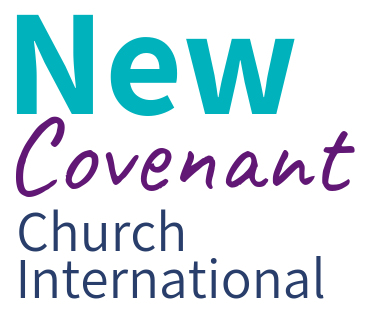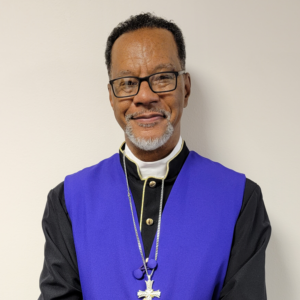Photo by Ben White on Unsplash
Ecclesiastes 3:14-15 (NKJV) 14 I know that whatever God does, It shall be forever. Nothing can be added to it, And nothing taken from it. God does it, that men should fear before Him. 15 That which is has already been, And what is to be has already been; And God requires an account of what is past.
Haggai 2:3 (NKJV) 3 Who is left among you who saw this temple in its former glory? And how do you see it now? In comparison with it, is this not in your eyes as nothing? — (70 Years between the destruction and construction of the Temple. See Ezra 3: 12-13).
Haggai 2:6-9 (NKJV) 6 “For thus says the Lord of hosts: Once more (it is a little while) I will shake heaven and earth, the sea and dry land; 7 and I will shake all nations, and they shall come to the Desire of All Nations, and I will fill this temple with glory,’ says the Lord of hosts. 8 ‘The silver is Mine, and the gold is Mine,’ says the Lord of hosts. 9 The glory of this latter temple shall be greater than the former,’ says the Lord of hosts. ‘And in this place I will give peace,’ says the Lord of hosts.”
I was planning on moving on in this devotional installment to something different. But I cannot shake the feeling that the events caused by the Covid-19 virus is an opportunity to learn something about ourselves. And again, the question is what does God want us to see? What does God want us to learn?
Eccl. 3:14-15 is a biblical reminder to us as human beings that we fail over and over, and history seems to teach us nothing. The wiseman laments that the things that have been in the past are essentially what is happening now. If some how we could go into the future, we would ascertain that even though some things have progressed and evolved, we keep repeating similar mistakes.
There is so much wisdom in this observation for our nation and indeed the world during this crisis. This is a very painful lesson, and it always is. God requires an accounting of our actions, and unless we change, we are certain to repeat the failures of the past.
In Haggai 1:7 God once again commands that the Israelites consider their ways. All of us would be wise to do the same while we are on this extended ‘stay-cation’ in our homes. More on what we should be considering in a moment. But first let me tell you about a similar time in the life of King David in 2 Samuel chapter 8.
King David planned to bring the Ark of the Covenant back to the city as a symbol of God’s presence and power. He gathered thirty thousand men to assist him because moving the ark would no doubt cause their enemies to notice, and possibly attack them. The bible says that they put the ark on a ‘new cart’, a kind of covered wagon. This seemingly innocent plan of action was apparently something they did without giving it a lot of thought at the time, however this was a violation of God’s law concerning the Ark of the Covenant, (see Num. 4:15; 7:9; and 18:3). Because of this, a man named Uzza, died on the spot. This was due to his attempt to ‘stabilize’ the cart when the oxen stumbled and caused it to nearly fall completely off the cart.
Many people far more knowledgeable than myself have pondered why God would literally kill a man who was just trying to keep the Ark from falling. I believe the reason was simple. The Lord wanted them to stop doing what they were doing, and they probably never would unless they paid a huge price. Simply put Israel as a nation should have known better.
People have a tendency to bend or break pesky laws that seem to prevent us from doing what we want to do. In fact, we seem to take pride in the ‘human spirit’ which apparently stops at nothing. We love to celebrate people who overcome silly obstacles like the law and what seems right, or just. We love to place them on pedestals of worship. Take no prisoners. Go big or go home. You know the drill. Unfortunately, this arrogance invariably causes us to feel that we can also ignore God’s laws, especially when He does not judge us immediately for doing so. (How many of us really still believe in God, or in His Sovereign authority)?
2 Samuel 6:8 (NIV) 8 Then David was angry because the Lord’s wrath had broken out against Uzzah, and to this day that place is called Perez Uzzah.
When David realized that Uzza had died because of his actions he became understandably distraught. He couldn’t wrap his head around the notion that God would actually take the life of a good man for what he considered such a small mistake. But remember that Israel’s history was already rife with examples of God’s wrath for breaking His laws. God had dealt harshly with them under Moses’ and Joshua’s leadership many times. They simply should have known better.
At this point David does something that turned the situation around. He stopped right where he was and began to enquire in the written laws why they were being judged. Interestingly for us, it took around 3 months before the Ark was moved again. So what was David doing during this unplanned ‘stay-cation’?
He repented and sought an answer from God. He noticed that the place where the Ark was placed temporarily was not harmed. This was an interesting development. They came to the conclusion that God was not just angry in general, because if he was Obed Edom’s house would not have been blessed due to the temporary presence of the Ark. I make this point because many people want to use this virus to promote their own preconceived ideas, or to profit from it. Without really seeking God we say things like; ‘God is judging us for this, or that’. David did not do this. He sought an answer from God, read the laws, and he also used common sense.
We don’t learn much from God by reading the bible and making it say what we want to say. We really need to humble ourselves and ask God by His Spirit to show us we HE wants to say. We shouldn’t just pray to God asking Him to do what we want. Jesus said that we should pray that the Father’s will be done. Sometimes God simply wants to change us!
When David got an answer from God, (and from His laws), he felt that it was time to come out of quarantine (my interpretation). The first time they moved the Ark, they began to celebrate. This celebration was quickly ended by death, grief, and sorrow. When they moved the Ark the second time David celebrated again, but this time the celebration was genuine because he knew that Israel was right with God.
This time the Ark was placed on the shoulders of the priest, (instead of being rolled in cart). But David changed the tempo of the parade. After having paid a dear price for his mistakes before, he declared that the parade would move slowly, only a few steps at a time. He did this because he had learned a valuable lesson in those three months. We can never go back to being how we were before. We will proceed with caution, asking for God’s favor with each new step and each new decision.
We will emerge from covid-19. The question is what have we learned?
In Haggai 2 God promised that the Temple would be rebuilt, and more importantly that His Glory would return to it. The priests wept when the new foundation was laid. They wept because of the great loss of the former temple, and how hopeless the situation looked for a new one. But God said; ‘I will be with you. I will help you to rebuild. I will give you peace’.
Let’s not be in such a hurry to move the Ark again. Let’s ask God humbly, ‘What are we doing wrong’? Let’s not wallow in despair either, because we believe that the Lord of Hosts is with us. The glory of our new house will be even greater than the former. That is; IF WE HAVE LEARNED anything.
To America in particular, let’s begin repenting for slavery, and Injustice. Inequality, racism, poverty, mistreatment of natives, …. and move forward to our present day quandaries that occupy news reports everyday.
Bishop Horace Ransom Jr.
Senior Pastor, Board of Directors
Bishop Horace Ransom Jr. is the Senior Pastor and Founder of New Covenant Church International in Detroit, Michigan. He is a Jurisdictional Bishop and serves on the Board of Presbytery for the Jabula International Network, North America. Bishop Ransom is an outstanding teacher of the Word of God with a passion for challenging believers to become the best that they can be. Faith, Purpose and the Kingdom of God are frequently the subject matter of his dissertation.


